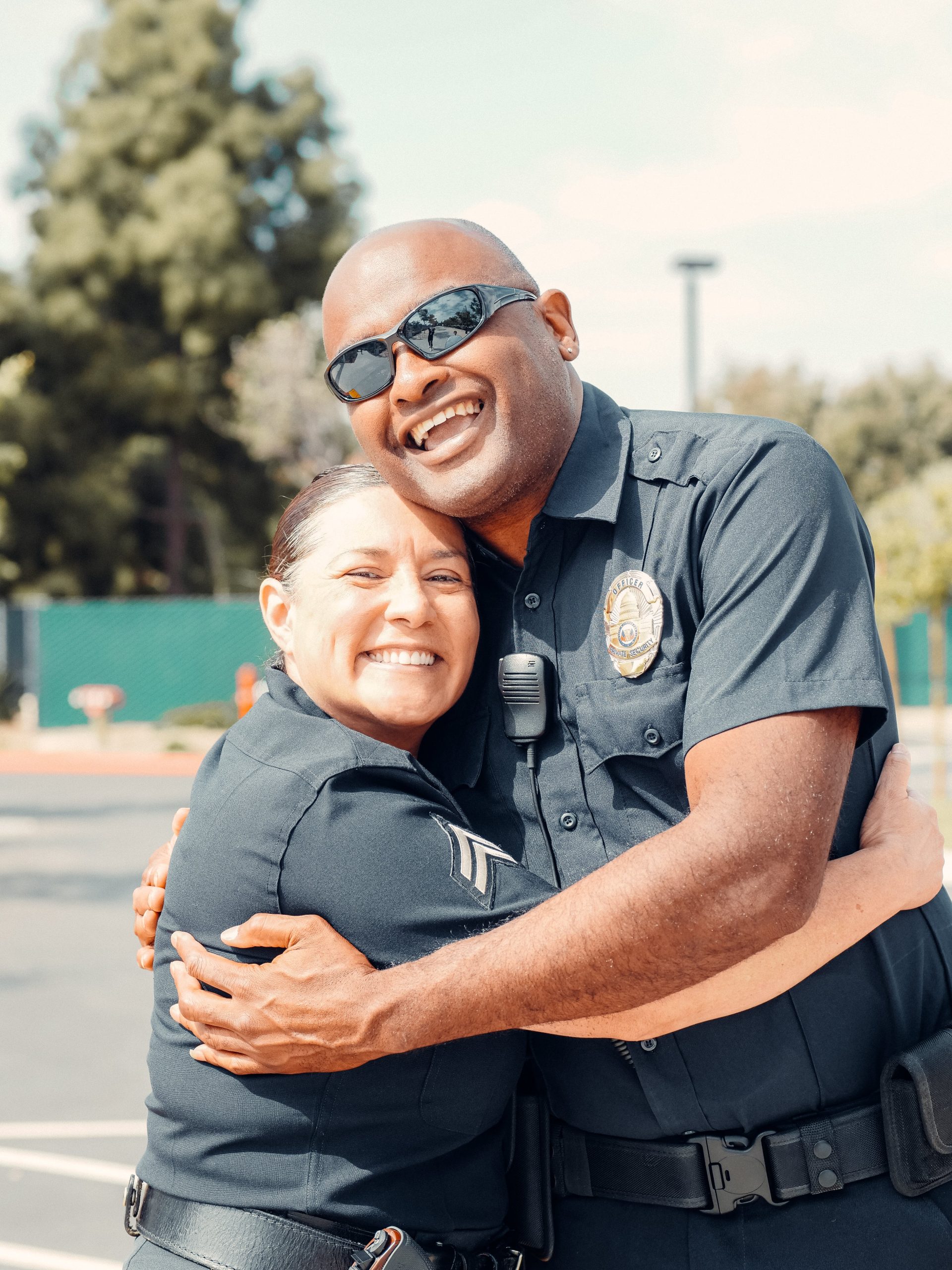Introduction In the demanding and often high-stress environment of law enforcement, the bonds between officers can be a powerful source of strength, resilience, and camaraderie. Fostering a culture of peer support not only enhances the overall well-being of officers but also contributes to improved job performance, reduced burnout, and a stronger sense of unity within the department.
This comprehensive guide explores the importance of peer support in law enforcement and provides actionable strategies for creating a culture that encourages officers to lean on one another, share their experiences, and offer a helping hand in times of need. By examining best practices and leveraging innovative solutions like Officer Survey, an online community and employee survey solution designed specifically for law enforcement agencies, leaders and decision-makers can cultivate an environment that promotes trust, empathy, and a deep sense of brotherhood and sisterhood among their officers.
The Unique Challenges Facing Law Enforcement Officers Law enforcement officers face a unique set of challenges that can take a significant toll on their physical, mental, and emotional well-being. From the inherent dangers of the job to the exposure to traumatic incidents, the demands placed on these brave men and women can be overwhelming.
Moreover, the cultural stigma surrounding mental health issues and the perceived need to project a tough, unwavering persona can discourage officers from seeking support or expressing vulnerability. This isolation can exacerbate stress, anxiety, and other mental health concerns, ultimately impacting job performance and overall well-being.
The Power of Peer Support Peer support offers a powerful antidote to the challenges faced by law enforcement officers. When officers have a strong network of colleagues who understand their experiences and can provide empathetic support, they are better equipped to cope with the pressures of the job and maintain their overall well-being.
Peer support programs create a safe and non-judgmental space for officers to share their struggles, seek guidance, and receive emotional and practical support from those who have walked a similar path. This shared understanding and camaraderie can be a lifeline, helping officers manage stress, process traumatic incidents, and navigate personal and professional challenges with greater resilience.
Establishing a Formal Peer Support Program While informal peer support naturally occurs among officers, establishing a formal peer support program can amplify its benefits and ensure that resources are available to all members of the department. This program should include trained peer support officers who have received specialized education in active listening, crisis intervention, and confidentiality protocols.
By providing a structured framework for peer support, agencies can ensure that officers have access to knowledgeable and compassionate colleagues who can offer guidance, emotional support, and referrals to professional resources when needed. Regular training and ongoing supervision for peer support officers are essential to maintain the program’s effectiveness and ensure adherence to best practices.
Fostering a Culture of Trust and Openness Creating a culture of peer support extends beyond establishing a formal program; it requires a fundamental shift in the department’s mindset and values. Law enforcement leaders must actively work to destigmatize mental health issues and encourage open dialogue about the challenges faced by officers.
This can be achieved through regular training sessions, town hall meetings, and department-wide initiatives that promote vulnerability, empathy, and a collective commitment to supporting one another. By modeling these values from the top down, leaders can create an environment where officers feel safe to seek support without fear of judgment or negative consequences.
Leveraging Technology for Accessible Peer Support In today’s digital age, technology can be a powerful ally in facilitating accessible peer support. Solutions like Officer Survey provide a secure and confidential platform for officers to share their experiences, seek guidance, and connect with peer support resources.
Through anonymous surveys and feedback mechanisms, officers can express their concerns, report incidents, or simply seek a listening ear without compromising their privacy or professional standing. This approach not only promotes openness and transparency but also empowers officers to take an active role in shaping the support systems within their department.
Fostering Peer Support Outside the Workplace While peer support within the department is crucial, it’s also important to encourage and facilitate supportive relationships among officers outside of the workplace. Organizing social events, team-building activities, and opportunities for officers and their families to connect can foster a sense of community and belonging that extends beyond the job.
These informal gatherings not only provide a much-needed outlet for stress relief and camaraderie but also create opportunities for officers to build deeper connections and support networks that can carry them through challenging times.
Continuous Evaluation and Improvement Creating a culture of peer support is an ongoing journey that requires continuous evaluation and improvement. Law enforcement agencies should regularly seek feedback from officers through anonymous surveys, focus groups, and open discussions to identify areas for enhancement within their peer support programs and broader cultural initiatives.
Leveraging tools like Officer Survey can provide valuable insights into the effectiveness of peer support efforts, allowing agencies to make data-driven decisions and adapt their strategies to better meet the evolving needs of their officers.
Conclusion Fostering a culture of peer support within law enforcement agencies is not just a matter of morale; it is a strategic investment in the well-being, resilience, and overall effectiveness of the brave men and women who serve and protect our communities. By creating an environment where officers can lean on one another, share their experiences, and offer a helping hand, agencies can cultivate a stronger, more united force capable of navigating the unique challenges of the profession with grace and fortitude.
Establishing formal peer support programs, promoting open dialogue, and leveraging technology solutions like Officer Survey are crucial steps in building a culture of trust, empathy, and mutual understanding. However, true transformation requires a sustained commitment from leaders and decision-makers to model these values, destigmatize mental health issues, and prioritize the overall well-being of their officers.
Remember, the bonds forged through peer support are not merely professional; they are the foundation of a brotherhood and sisterhood that transcends the uniform, strengthening the fabric of our law enforcement community and enabling officers to serve with courage, compassion, and an unwavering commitment to one another.
As you embark on this journey of creating a culture of peer support, embrace the power of shared experiences, foster an environment of vulnerability and authenticity, and never underestimate the profound impact that a supportive network can have on the lives and resilience of those who put their lives on the line every day. For in the end, it is this unbreakable bond that will sustain your officers through the darkest of times and empower them to rise as beacons of strength, service, and unwavering dedication to the communities they serve.






